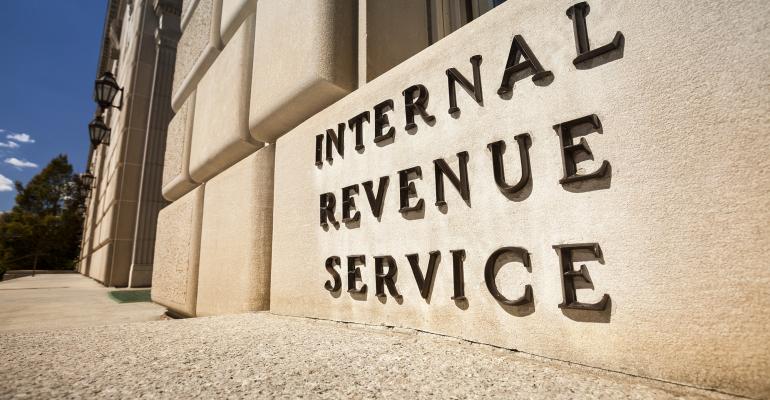The Internal Revenue Service has announced four alternatives associated with the Appeals Alternative Dispute Resolution Program. This is good news. Outside stakeholders have been encouraging the IRS to expand ways to resolve cases with the agency. According to a GAO report released in May 2023, The IRS Could Better Manage Alternative Dispute Resolution Programs to Maximize Benefits, there was room for improvement. The IRS has seen declining alternative dispute resolution closed cases fall from a high of 429 in 2014 to a low of 119 in 2022.
The IRS was paying attention, and with this latest announcement, is offering four programs. The IRS Commissioner and the Chief Independent Office of Appeals should be commended for taking steps to address these issues. According to the agency’s press release, “The IRS hopes to make its ADR programs such as Fast Track Settlement, Fast Track Mediation, Rapid Appeals Process, and Post-Appeals Mediation more attractive and accessible for all eligible parties.” Here is a summary of all four programs.
Fast Track Settlement
The fast track settlement program allows IRS Appeals to join the IRS audit and, if an agreement can be reached, exercise its settlement authority during the audit process. The IRS and the taxpayer don’t have to wait to file an appeal with IRS Appeals.
Fast Track Mediation
With Fast Track Mediation, an independent mediator from the IRS Independent Office of Appeals will try to help the taxpayer and the IRS reach an agreement on the disputed issue(s). The mediator will facilitate settlement discussions and may offer settlement proposals.
Rapid Appeals Process
The Rapid Appeals Process (RAP) takes place while the case is in Appeals’ jurisdiction and is designed to be completed in one conference. The Rapid Appeals Process is a tool used to improve the efficiency and timeliness of Appeals resolutions.
Post-Appeals Mediation
Post-Appeals Mediation (PAM) lets the taxpayer and their appeals officer or settlement officer resolve disputes while their case is still under Appeals’ consideration. Once your PAM application is accepted, the goal is resolution within 60-90 days.
With PAM, a trained mediator from the IRS Independent Office of Appeals is assigned to help the taxpayer and their appeals officer or settlement officer reach an agreement on the disputed issue(s). PAM doesn’t create any special authority for settlement by Appeals. The taxpayer retains full control over every decision they make during the PAM process. No one can impose a decision on either you or Appeals.
The Appeals mediator is specifically trained in mediation techniques and is independent of the Appeals employee the taxpayer has been working with.
Practical Observations for Consideration
As part of a negotiation team the last two days on a post-appeals-mediation I applaud the IRS for these initiatives. This is a top-down initiative. The IRS is hiring many individuals from the private sector who don’t have institutional knowledge. This, too, poses some challenges. The IRS participants and the taxpayer’s representatives in the process must be willing to compromise to make the system work. In our situation, starting over with post-appeals-mediation, the taxpayer was at 100%, and the IRS was at 0%. The IRS offered a 20% concession and no penalty, stating this was a change from their starting position of zero in post-appeals-mediation. As a mediator, negotiator and facilitator, I can tell you that the taxpayer didn’t perceive this as a concession by the IRS. The taxpayer was a Small Business/Self-Employed taxpayer and couldn’t afford to litigate the issue. A final offer by the taxpayer to settle at a 25% concession and no penalty was requested to allow the taxpayer to save face given the time spent on this 8-year process. The IRS accepted this offer and deemed it a successful post-appeals mediation.
In my private sector mediation practice, if the parties aren’t willing to move at least 10% from their starting position (and in this case, I would have indicated that would have been the starting Appeals decision of 20% concession and no penalty), I wouldn’t take on the mediation. I don’t want to waste their time and resources.
Leadership starts at the top. It will take a real effort by the IRS to change the culture and for the parties to really listen and work towards collaboration to make these programs successful. Perhaps a major structural change similar to the 1998 Restructuring and Reform Act is necessary to make the cultural change required to make this program a true success. The current Commissioner should be applauded for taking these initiatives. By-in is needed at every level to make these programs work as intended. Let’s give the system a chance. Hopefully, the IRS will get behind the numbers and see if this can make a real change this time. I hope so.
Michael Gregory or Michael Gregory Consulting, LLC, a mediation and negotiation conflict resolution specialist and professional speaker, may be contacted at [email protected].





